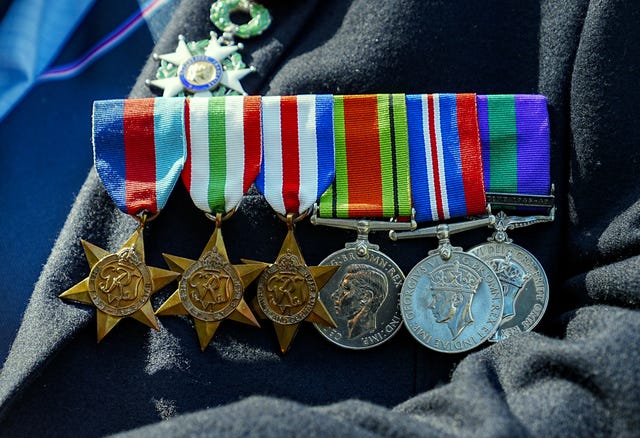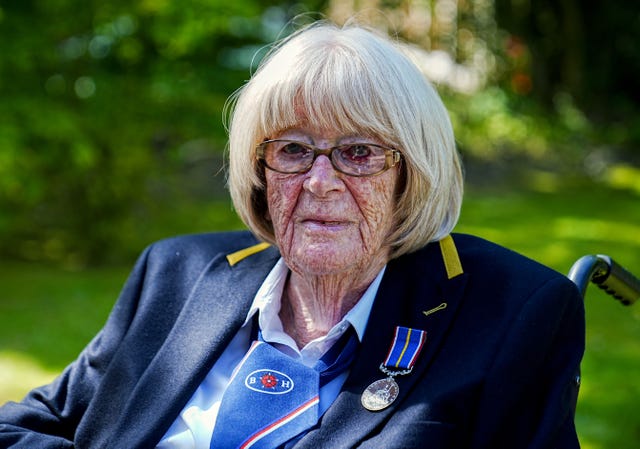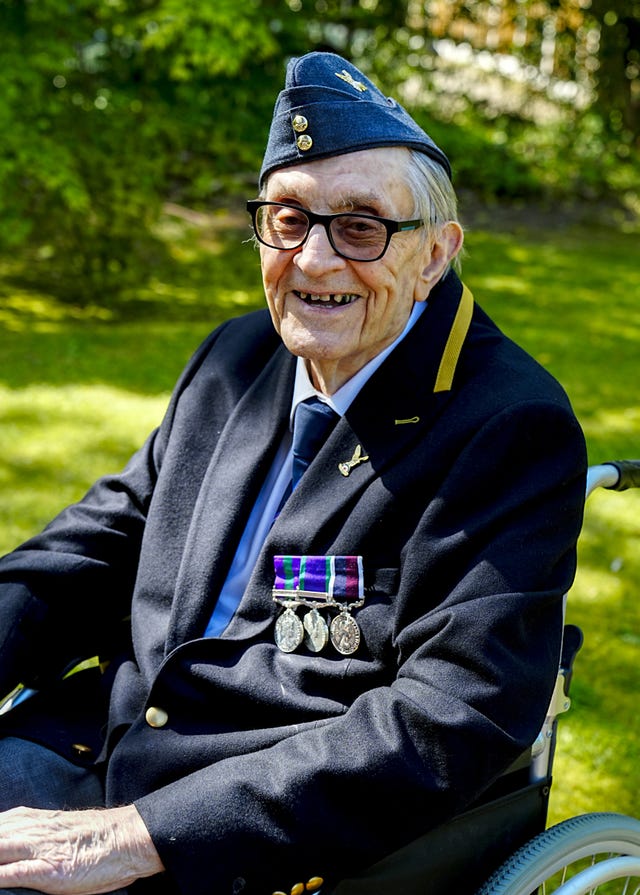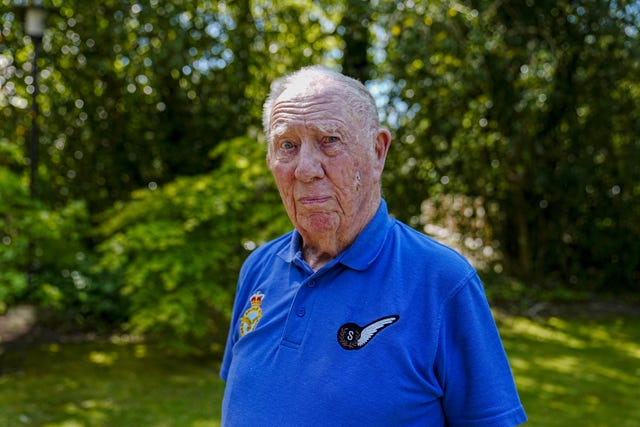British paratrooper came across Nazi death camp on VE Day
Peter Belcher, aged 101, spoke of ‘relief’ that the war was over.

While millions rejoiced across a devastated Europe as the guns finally fell silent on VE Day, British paratrooper Peter Belcher was witnessing the worst of Nazi Germany at a concentration camp.
He was already a veteran of the D-Day landings and the Battle of the Bulge, but the worst was yet to come.
Decorated six times, after fighting his way across France, for which he received the Legion d’Honneur, by May 1945, his unit was stationed near the Baltic coast, meeting Russian troops advancing from the east.

Two days later Germany surrendered but there was no great celebration for Corporal Belcher and his unit.
Near them was a rail line running into woodland, used by one of the hundreds of concentration camps the Nazi regime had set up.
Mr Belcher, now aged 101, and who served with the 2nd Battalion Oxfordshire & Buckinghamshire Light Infantry, part of the 6th Airborne Division, said: “We actually… with the padre, went to a nearby concentration camp and there were two survivors still in there.
“They just didn’t believe, because the gates were open and nobody about, that they could just walk out.
“There was a pile of bodies. There was a pit already dug and the bodies were literally skin and bone, piled high.
“The next day or two after we got the village people and took them to give them a burial.”
Mr Belcher, originally from Devizes, Wiltshire, said VE Day meant “relief”, adding, “As a whole you said, ‘Thank God it’s over’.”
But not for long – within 10 days he was back in England and soon leaving again to fight the ongoing war in the Far East.
Mr Belcher is among the 60 or so veterans who live at Broughton House Veterans Care Village in Salford, Greater Manchester, which has looked after more than 8,000 veterans since it first opened its doors in 1916.
Another resident, Jean Mack, aged 92, who joined the Royal Navy at the age of 21, was born in Putney, London, and remembers the war ending as a teenager growing up in Worthing, East Sussex.

Mrs Mack said: “I presumed it was over simply because all the adults, they all seemed to be going mad about something and dancing everywhere.
“There was a big, I think it was an air-raid shelter at the end of our road and there was a piper, how he got up on there I don’t know… complete in his kilt marching round and round the top of there.”
Reg Mitchell, now 91, from Twickenham, London, remembers the capital being devastated by the Blitz when Germany’s victory and invasion of Britain seemed inevitable.
Mr Mitchell, who served with the RAF for 25 years before retiring as a Flight Lieutenant, said: “We lived in the house which had a cellar.

“And as kids we spent the first years on the steps of the cellar at night. It was endless, you know, although they were getting it in the East End, we were getting the noise.
“Almost every night. We virtually lived in the cellar.”
But on VE Day he remembers his family having an enterprising way of making money.
His brother-in-law had fought in the war and had taken a Nazi flag from the town hall in Aachen, Germany.
Mr Mitchell said: “My father and my brother-in-law went round the streets with this flag, inviting people to pay sixpence to spit on it.
“I can distinctly remember that.”
Victory in Europe for the Allies meant an end to the fighting but also revealed the full scale of the Nazi Holocaust as advancing Allied forces overran the death camps.
Mr Mitchell said: “Around that time specifically I can remember Belsen, because that was opened up just before VE Day because there was pictures in the paper.
“And it left a mark on me. I had a very good friend at school, his father was a local rabbi, and they obviously would’ve known what was happening but we didn’t.”

Mike Clarke, 90, also living at Broughton House, recalls the VE Day bonfire held in his home village of Barwick-in-Elmet, near Leeds, West Yorkshire.
Mr Clarke, who went on to serve in the RAF for 22 years, said: “It wasn’t like any other day.
“I think there was a feeling of relief, no doubt about it because you were thinking, the killing, the dying is stopping.”
Mr Clarke, who lost two uncles killed in the war, also said the anniversary should be marked not just for victory in Europe but also it brought home the revelation of the Holocaust.
He said: “For those who gave their lives particularly and having seen, four or five weeks prior to the end of the war, you went to the cinema and you got the news on the cinema, and we seen pictures of Belsen and that was quite horrific.
“During four years or five years of the war we, as peasants, didn’t sort of realise what was going on with the Jews, homosexuals and everybody else that Hitler tried to get rid of – got rid of.
“So, it was quite enlightening seeing that on the cinema.
“So, the end of that type of thing was a blessing.”





